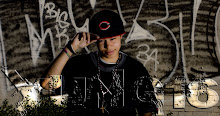Oakland is a city with struggle in its bones and with history in its teeth. It is a city that lives out the truth of the great American experiment. It contains both the failures and the promise of that shining city on the hill. But Oakland is not just the hills—it is the valleys, the flat lands that lie between here and nowhere, places abandoned by history and time, or left for dead on the rocks of progress, some places growing new again with mixed communities and passionate people.
Oakland contains the flux and flow of all American cities; it is a place people have come to start again, to build anew. But like many industrial port towns, Oakland is a place that people have lived in all their lives.
Oakland is a passionate city, a unique city. It is a city bent on bettering itself and its residents, but its problems are never existential—even in the hardest of times, Oakland knows who it is.
It may be a city that suffers from the aftershocks of the post-industrial age, but it is also a city that can raise its head in the ranks of the revolution. It was here, after all, where the Black Panthers raised their voice, not just as radicals, but as civic activists. One thing I have seen is that those who live and work here are devoutly Oaklandish. To borrow the cities slogan; you don’t just love Oakland, you hella love Oakland. It is a city that may reveal controversy, but it always inspires loyalty. And there is no one Oakland. There are multiple Oaklands.
A diverse city is a beautiful thing, but the flip side, and there is always a flip side, is that there are also different factions, different Oakland’s that speak different languages and do not always speak TO each other, just ABOUT each other. So this project that we embarked on—it is about violence in Oakland, but it is also about trying to forge conversation between the fault lines, the myriad Oakland’s. Hoping that something in the different conversations illuminates some truth, not just a common truth, a common dream, and a common language, but a deep humanity. But the fault lines exist, and they run deep.
Nowhere is this clearer than in neighborhoods like East Oakland. I take the Bart, and then the 50 bus line, into East Oakland often these days. And what I see, to be completely honest, is a multicultural city that is still deeply segregated. To those that come from 72nd and from 85th, from the neighborhoods that are sometimes called the killing fields and the murder dubs, there is an Oakland that is home and then there is the rest: the outside. I know that I am, for all intents and purposes, a white girl walking into a world that is in some ways dangerous, and in many other ways damaged. I love these streets, and I love the people I meet. But I recognize that in many ways, I am walking into a different culture. It can be shocking to see the open air drug markets, the cop cars on every corner. To hear gun shots from time to time. It can be brutal to see young girls in tight skirts, and realize that this part of the world is a mecca for sex with underage girls. It can be heartbreaking to hear young men talk about selling drugs as what they have to do to survive. Even though I know that there are parts of our cities that have been economically abandoned, to come face to face with rows of empty boarded up buildings, to hear the way in which violence has touched the life of every single person we talk to is haunting. But we have built these fault lines, or let them grow into fortresses, and the only way to break them down is to try to reach over the imagined divide. Seeing this is one thing. Getting people to talk, to really tell us the stories of their lives, that is another mountain to climb.

